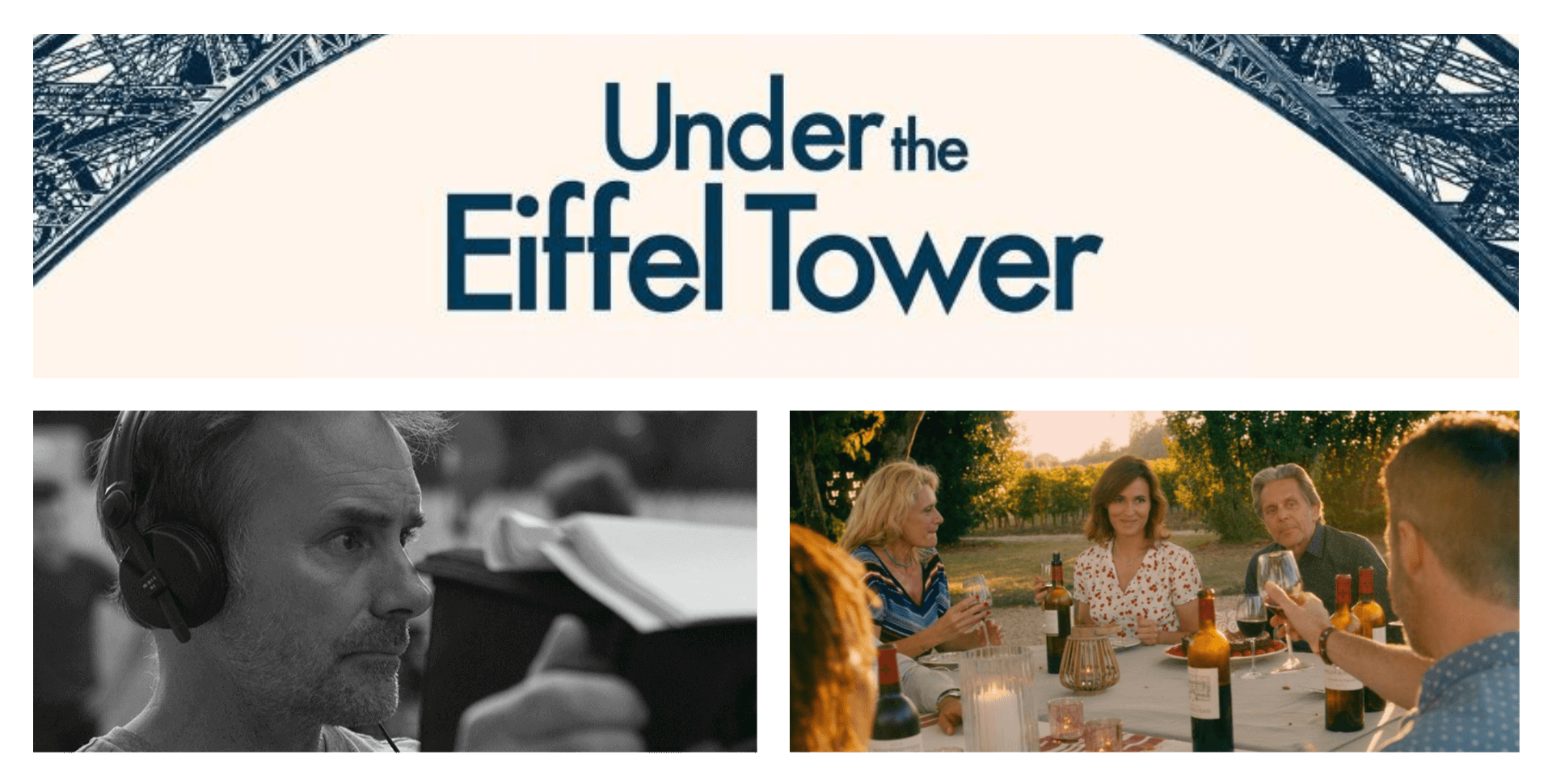If there's anything that can cure a bourbon soaked mid-life crisis, it must certainly be a wine-filled trip to the most romantic place on earth. With his latest film Under the Eiffel Tower, Archie Borders guides an impressive cast of comedy heavyweights across the cozy and endlessly romantic French countryside. Hitting theaters on Feb 8th and VOD Feb 12th, Archie further develops our film making palates with answers to a few of our questions.
How much of this story stays true to the story it's based on? What inspirations were drawn from in writing the script for Under the Eiffel Tower?
Only the concept, that of a marriage proposal rejected under the Eiffel tower, is true. Afterward, however, my friend, also named Stuart, did go on a drunken jaunt across Europe with a soccer player in pursuit of a woman. But the details, especially the age of the characters and circumstances following the proposal, were invented by my co-writer David Henry and myself. Another true detail is that they did fall in love with a woman who paints. In this case, both David’s wife Clare and my wife Anne are painters, so that’s a very personal detail for me as well.
What is the most important aspect of getting the perfect comedic moment? Does it stem from the script, is it up to the actor's intuition, or is it conducted through direction and editing?
It’s all those things! The cast certainly has to have the timing and performance chops to find the beats of the scene and, as a director, it’s up to me to both set an environment so the actors are comfortable and one where they can do their best work. Then, of course, provided you have the right coverage, the edit allows you to play with the pace and tone of every scene over the course of the entire movie.
How much should a script dictate the work being done at any given moment?
The script is the blueprint; it allows the director, the supporting crew and the cast to build the scene from the ground up. You can certainly embellish what you have on the page, either through improvisation or experimentation, but everything, the plot, the thematic concerns, the artistic vision, all are launched from the screenplay.
How did you go about casting Under the Eiffel Tower and how do you judge chemistry between actors?
Once we had our script, we went to our casting agent, Mary Clay Boland, who reached out to UTA (United Talent Agency). I had known Matt Walsh’s work from Veep and numerous other supporting roles and I felt very strongly that he could be the leading man for the Eiffel Tower. He had both an ‘everyman’ quality about him but a there was also a quick wit and intelligence bubbling beneath his regular guy surface. I had seen Judith Godreche in The Overnight and she instantly stood out amongst a very talented ensemble cast. She had a very thoughtful, cool quality, one of confidence but also an honest vulnerability that was perfect for the part of Louise. Dave and I came out to LA and we organized a lunch with both Matt and Judith. They got along wonderfully and it was very obvious that they would have great on-screen chemistry.
What can filmmakers do, altogether, to make the future of filmmaking better than ever?
Make smarter movies, with smarter characters, smarter actors, and smart stories. Don’t talk down or pander, give an audience something that can surprise or challenge them. There’s a great line from the 1991 movie, “Impromptu,” starring Judy Davis as George Sand; “art does not apologize.” I think that’s what the best filmmakers do; provide an honest story, with all its wonderful contradictions, reality, comedy, etc. The storytelling just needs to be smart. And not apologize.
What aspects of your life have most influenced how you write and direct?
Being a filmmaker who does not live on either of the coasts, (LA or NYC) the region of the country I’m in, often called the “flyover’ states, has probably put a little chip on my shoulder. There is art, culture, cuisine, and invention here that is often stereotyped or ridiculed. It’s important to me, as a filmmaker, to represent the three-dimensional people who love, screw up, live and grow in this region of the country.
If you had infinite resources and budget, what is a fantasy project you would like to tackle?
I’ve always wanted to adapt Wally Lamb’s “She’s Come Undone,” for the big screen or in serialized form.
What's next for you?
An adaptation Wally Lamb’s “She’s Come Undone,” for the big screen or in serialized form. Just kidding (but I’m hopeful). Currently, Dave Henry and I are finishing up a new romantic comedy called “Sunset Cruise,” a holiday movie, set between Thanksgiving and Christmas, about three generations of women, their relationships with each other, and their various romantic entanglements. It’s sort of like “Steel Magnolias” meets “Love Actually.”
Under the Eiffel Tower is available On Digital and On Demand.
Watch Under the Eiffel Tower via Amazon

